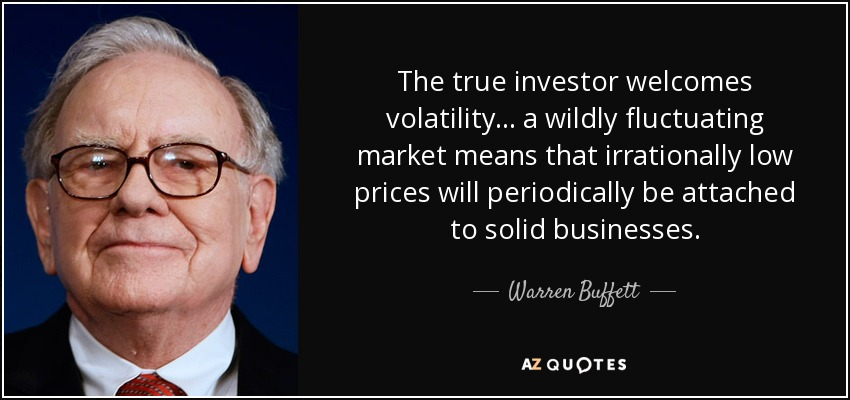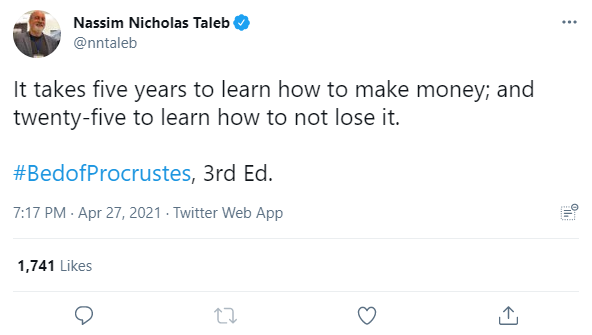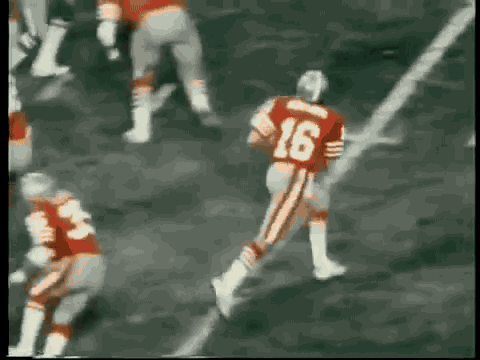Posted November 29, 2024
By Sean Ring
Keep Calm and BTFD (Buy The Dip*)
I’m not sure how long this bullish trend will last. My alarm bells are going off all over the place, but that’s because I spent too much time in my old bank's fixed income division.
But as I hear the cowbells clanging outside, I feel a warm serenity wash over me.
And doubtless, when I publish my monthly asset class report next week, I’ll write things like, “There’s no reason to sell here.”
Both the Dow Jones Industrials and Transports made new highs. As I write, the SPX and the NDX are knocking on record highs. Stocks are in a bull market, Bitcoin is soaring, and even bonds are holding their own… for now.
While gold and silver were monkey-hammered on Monday, I remain optimistic they’ll do well once the world realizes the inevitable outcomes of The Donald’s economic strategy. His plans can only work if he diverts all the incoming USD from the stock and real estate markets to goods and services. And that will cause a financial crash. He’ll realize that sooner or later. Then, Jay Powell will be welcomed to start QE5… or whatever number we’re on.
So, learn to stop worrying and love the volatility!

“Trading is the Act of Becoming Inhuman.”
“Just buy low and sell high.”
It seems so easy, but 97% of all investors lose money. That’s right, and they’re the donor class. They donate their hard-earned, after-tax income to those who’ve figured out how to consistently make money in the markets.
If you ask most traders, they won’t give you an indicator they use or the people they listen to. Traders talk about controlling one’s emotions, mindset, and continuous improvement.
Here’s another thing Warren Buffett got utterly right:
“If you can’t control your emotions, you can’t control your money.”
This brings me to why volatility affects some more than others.
Far from being some pedant lecturing you on how to keep a stiff upper lip - something Brits no longer can do anyway - I’ll share my journey from emotional basket case to (more) level-headed investor.
“If you’re so smart, why aren’t you rich?”
Or at least richer.
I often wondered why I didn’t have as big a brokerage account as I’d like. I worked as an institutional broker at one of the world’s largest investment banks and couldn’t build up my winter supply of acorns.
I found comfort in what Renaissance Man and all-around genius Nassim Nicholas Taleb once wrote:

And funnily enough, as I approach my 28th year working, I’m much better at not losing it.
But I needed to dig deeper to discover what I was doing wrong.
Before I go there, let me say this: if you haven’t read any of Taleb’s books, you should. They help make sense of a crazy world. The books are Fooled By Randomness, The Black Swan, The Bed of Procrustes, Antifragile, and Skin in the Game. (Leave Dynamic Delta Hedging out unless you’re already a seasoned options trader.)
Another book I picked up and really enjoyed, and that helped me, was The Mental Edge inTrading by Jason Williams, with a foreword by Larry Williams. Larry is a world-famous futures trader, and Jason is his Johns Hopkins-educated psychologist son.
I highly recommend it, not just to improve your trading skills but also to learn more about yourself.
It relates the Big Five Personality types to trading. I’ll explain what they are in a bit.
After I had read the book—which took one sitting—I emailed Dr. Williams to ask if he’d perform the Big 5 Personality Test on me. He kindly replied that he didn’t do that anymore, thanks to the flood of requests!
Luckily, that famous Canadian psychologist, Jordan Peterson, posted the test online.
Understand Myself is a great place to take the Big 5 Personality test cheaply. It costs $9.95; that’s nothing compared to what you learn.
The Big Five traits are neuroticism, extraversion, openness, agreeableness, and conscientiousness. I won’t discuss all five, just those particularly relevant to trading.
We’ll do this through my scores without TMI (too much information).
To no one’s surprise, I’m highly extroverted. Abnormally so. I used to love to hang out, drink beer, tell jokes, and party the night away. But let’s define extraversion as a psychologist would: sensitivity to good things happening. When good things happen, I feel really good.
It was also unsurprising to me that I lack conscientiousness. Unfortunately, this is an essential trait for success. I’ve often bragged about being a “big picture” person, but when you lose the details, you lose opportunities. And when you take your eye off the market, it may take your head off in return.
What was incredibly surprising to me at the time was my neuroticism score. It’s off the charts. Like you probably do, I defined neuroticism with a picture of a lonely woman with dozens of cats who keeps a wine glass in the fridge next to her winebox. But that’s not neuroticism at all.
How do psychologists define neuroticism? It’s the sensitivity to bad things happening. It’s the evil twin of extraversion. And when things go wrong, I used to get down—like, devastated. I’m the complete opposite of one of my boyhood heroes, Joe Montana. Nothing ever bothered Joe Cool. I would weakly wallow for far too long.

What does that all mean?
Well, I should come with my own VIX index! I used to get very happy and then really moody. And thanks to my lack of conscientiousness, I’d forget to do what needed to be done.
Is it all bad?
Absolutely not! In fact, taking that test changed my life because I knew exactly where I needed to improve. (And I stopped wondering how the heck I got into Mensa.)
So here are some specific, concrete improvements I made, thanks to this test:
- I put take-profit levels on every trade I do. My extraversion usually means I don’t want the party to stop. So I’d get a huge dopamine hit from paper gains and, fatally, not close out the trade. Putting take-profit levels on every trade prevents this from happening.
- I put stop-losses on every trade I do. My neuroticism usually means I get too miserable to close out the trade. I used to freeze and do nothing. Now I’m out of my trades when they’re losing. And quickly.
- Thanks to my lack of conscientiousness, I put everything in electronically. That goes for reminders, lists, calendar dates, you name it. I rarely miss meetings now, let alone trades.
Just those three little improvements have made an enormous difference in my life. It doesn’t mean I win every time; it just means I don’t lose stupidly most of the time.
I hope you’ll pardon me if I overshared. But if you think you can improve your trading but don’t know how to start, keep trying. You may be right there, closer than you can imagine, and just need a little tweak.

Born in the USA!
Posted July 04, 2025
By Sean Ring

Trump’s Big Bloated Budget Boondoggle
Posted July 03, 2025
By Sean Ring

Rickards Drops Truth Bombs on Iran Strike
Posted July 02, 2025
By Sean Ring

Dollar Dumps, Everything Pumps
Posted July 01, 2025
By Sean Ring

“That’s A Disgusting Assessment of the Conflict!”
Posted June 30, 2025
By Sean Ring

